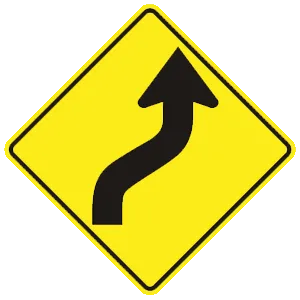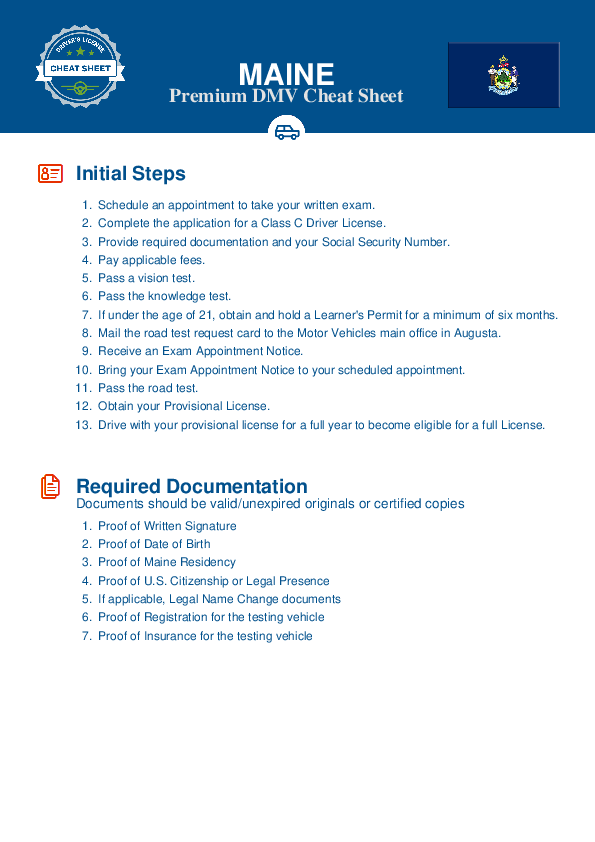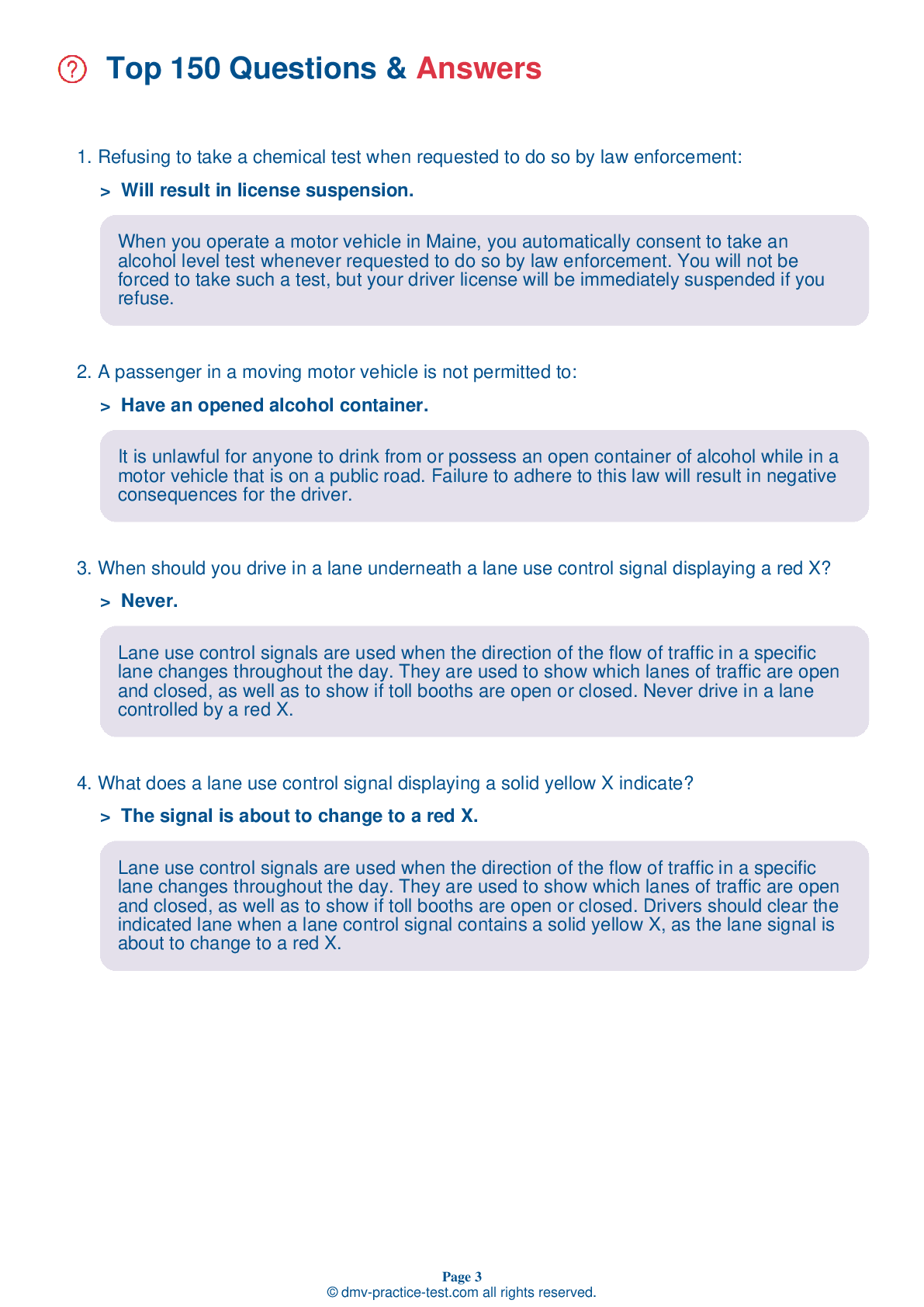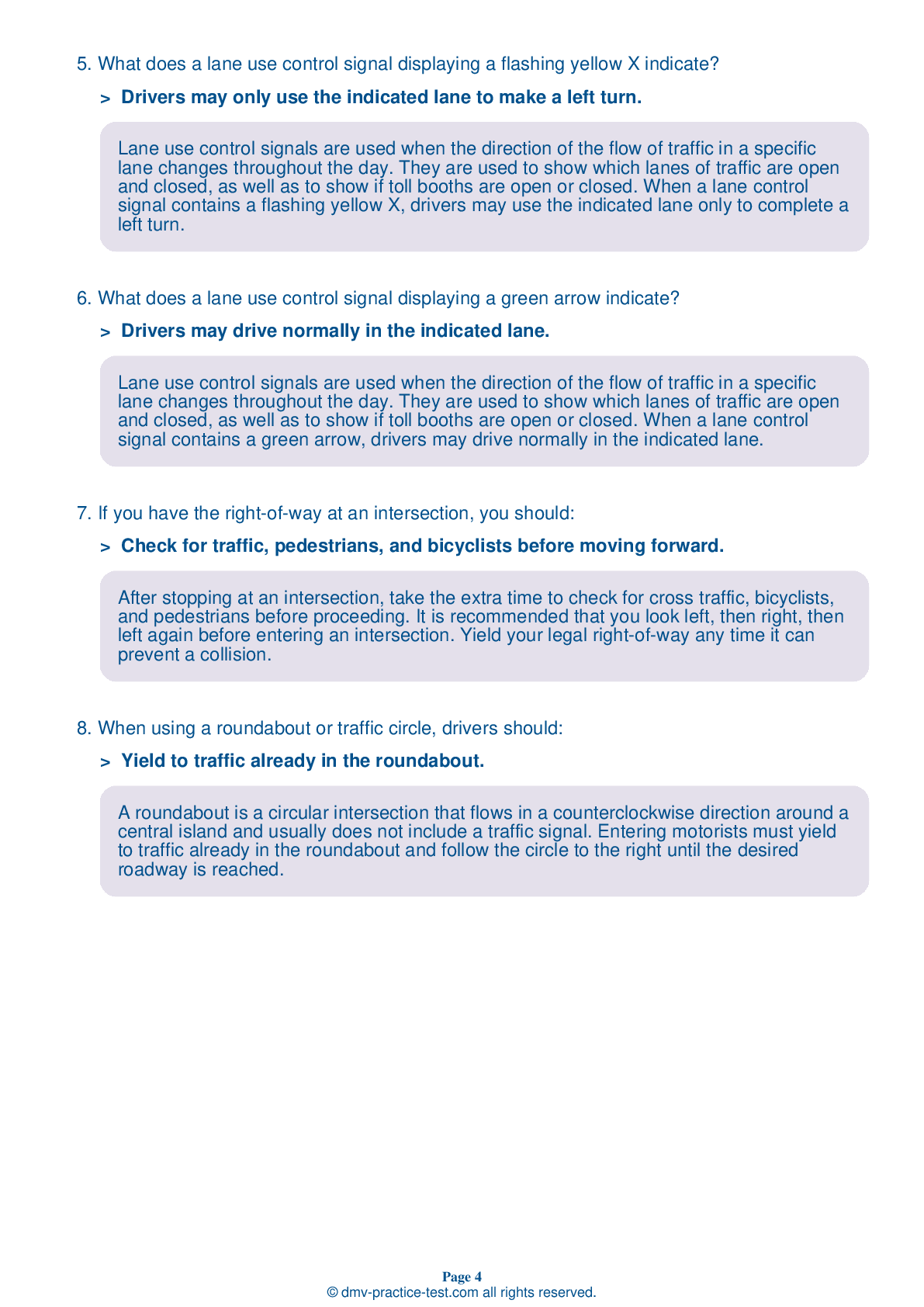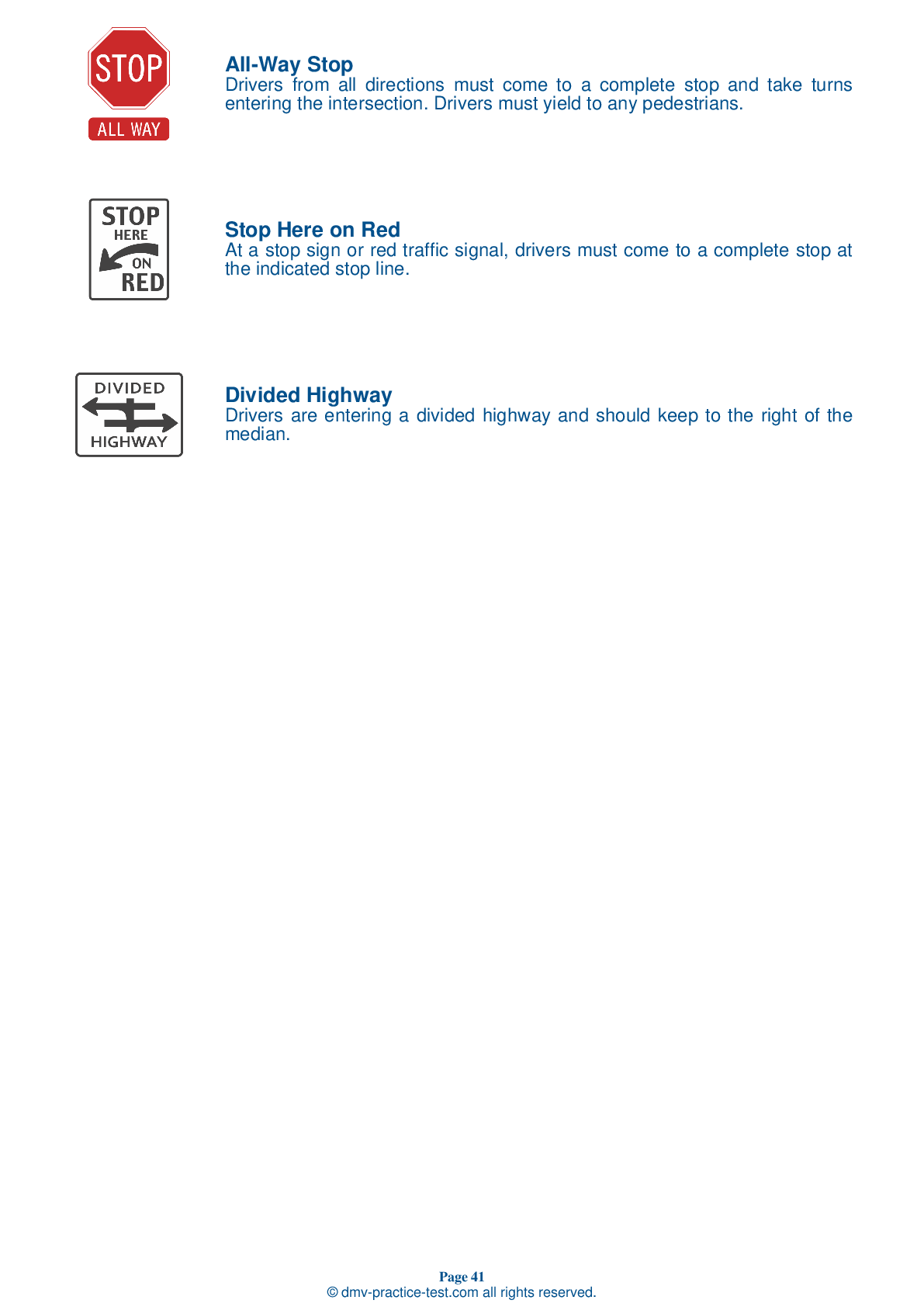FREE Maine DMV Practice Test #17 Page 6 of 7
For January 2025, Maine's DMV practise exams have been updated. It includes questions based on the most important traffic signals and legislation for 2025 from the Maine Driver Handbook. To study for the DMV driving permit test and driver's licence exam, use actual questions that are very similar (often identical!) to the DMV driving permit test and driver's licence exam.
Each question on the practise exam has a tip and explanation to help you recall the ideas. Questions about traffic rules, traffic signs, and driving statutes, as well as knowledge from the Driver Handbook, will be included in the written portion of the official Maine DMV test.
You must properly answer 50 of the 60 questions to receive a passing mark. To help you prepare for your Maine instruction permit or driver's licence, take our DMV practise test.
The DMV exam is offered in a variety of languages.
Using any form of testing help will result in an automatic fail, and the DMV may take further action against your driver's licence, so avoid it.
41 . Which of the following statements is correct?
Use your right foot for both braking and accelerating. You should apply the brakes gently with increasing pressure so that your vehicle stops gradually and smoothly.
42 . If driving in fog, a driver should turn on the high beam headlights to increase their field of vision.
While it is not advisable to drive in fog, if you must drive in foggy conditions, you should drive with the headlights set on dim or use fog lights.
43 . Which is the most common cause of traffic crashes?
Crashes often occur when one driver does not see another vehicle or when a driver does something unexpected. Communicate with other drivers on the road to help prevent traffic crashes.
44 . ____ greatly increase stopping distances and severity of crashes.
High speeds greatly increase stopping distances and severity of crashes. The faster you drive, the greater the impact or striking power of your vehicle, should you be involved in a collision.
45 . Which of the following describes the thinking of defensive drivers?
Driving defensively means anticipating potential errors made by others and preparing to compensate for their mistakes.
46 . If worried, nervous, angry, or crying, a driver:
You may not be able to drive well if you are worried, excited, crying, angry, or depressed. Emotions can distract you from your driving because your mind is focused on something else. Take time to calm down and get focused before driving.
47 . When entering an interstate highway, you should:
Rather than stopping (as you would when entering other roads), you must use the merging or acceleration lane to speed up and smoothly merge with fast-moving traffic already on the interstate.
48 . This sign means:
